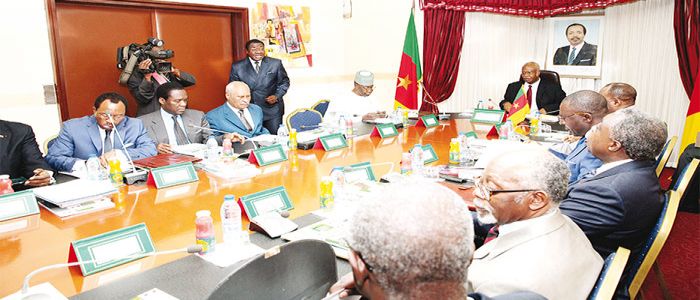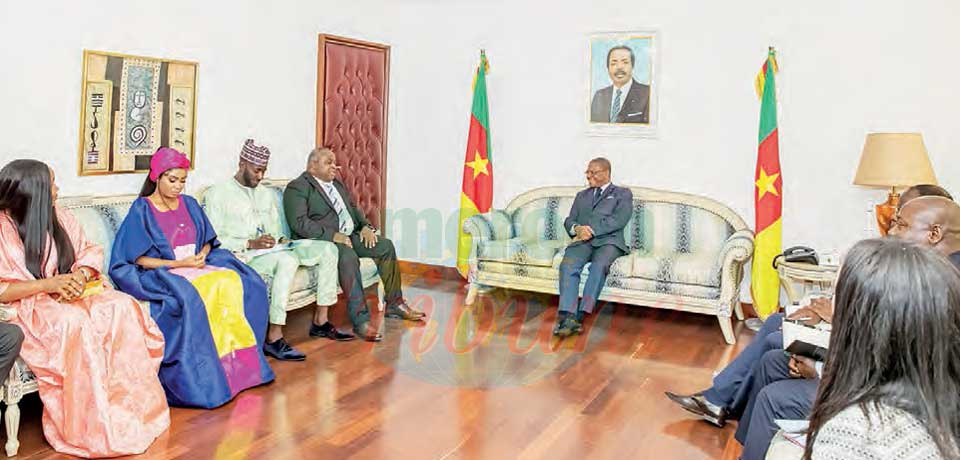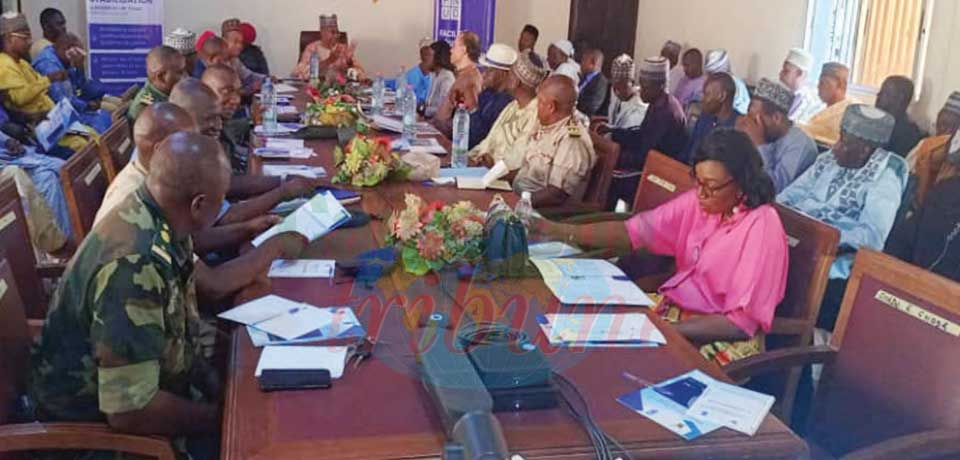Population and Housing Census: PM Instructs Economy Minister To Intensify Preparations

Following is a press release of the Cabinet meeting of Thursday, February 23,2017.
“The Prime Minister, Head of Government, H.E Philemon YANG, chaired an important Cabinet Meeting this Thursday 23 February 2017 at 9:00 a.m. in the Prime Minister's Office.
Besides his close aides, the meeting was attended by the Vice-Prime Minister, Ministers of State, Ministers, Ministers-Delegate and Secretaries of State.
The following three items featured on the agenda:
1.A statement by the Minister of Territorial Administration and Decentralization on “the achievements and prospects of the civil status reform in Cameroon”;
2.A report of the Minister of Youth Affairs and Civic Education on “the effectiveness of the National Civic Service Agency for Participatory Development”;
3.A report of the Minister Delegate at the Ministry of the Economy, Planning and Regional Development on “the progress of preparations towards the fourth general population and housing census”:
Taking the floor after opening remarks by the Prime Minister, Head of Govemment, the Minister of Territorial Administration and Decentralisation, stated that the civil status reform stems from a diagnosis which revealed a number of shortcomings relating especially to documentary fraud, haphazard conservation and archiving of civil status registers, as well as the indifference of people towards civil status events. To make up for these shortcomings, Govemment with the support of its development partners, set up the Cameroon Civil Status Rehabilitation Programme since 2010 consisting of five major components, namely: (i) data search and information collection with a view to designing a civil status map for Cameroon; (ii) reforming the judicial and institutional framework, by promulgating the the Law of 6 May 2011 which introduced several innovations in the organisation and functioning of Cameroon's civil status, some of which include the replacement of special civil status centres with secondary centres, the extension of deadlines for the declaration of birth and death that have moved from 30 to 90 days and especially, the establishment of the National Civil Status Bureau (BUNEC); (iii) sensitising and training all stakeholders involved; (iv) setting up a comprehensive investment programme and (v) building up a computerised and secured national civil status filing system.
With regard to prospects, the Minister of Territorial Administration and Decentralisation revealed that a number of actions are being considered to strengthen the ongoing reform. He thus announced the completion of the study on specifie populations geared towards getting them registered on the civil status registers; matching the provisions of the 1987 Decree for the organisation and functioning of special civil status centres with the Law of 6 May 2011; integrating trainning modules on the civil status into the various levels of education.
Speaking after this statement, the Minister of Youth Affairs and Civic Education reported on the effectiveness of the National Civic Service Agency for Participatory Development. He noted that the National Civic Service Agency for Participatory Development, a secular arm of the State in this domain, has been vested with a mission to mobilise energies for the economie, social and cultural development of the country, promote national and patriotic feeling, promote the sense of discipline, tolerance, general interest, dignity of work, civic mindedness and the culture of peace. This agency became operation al in 2012 in accordance with the two commitment periods which are its raison d'être. The sixty (60) days mandatory period, has already mobilised 11,000 young conscripts aged between 17 and 21; that is, 4,000 in 2014,6,000 in 2015 and 1,000 in 2016.
The duration of the voluntary work period is six months renewable once and concems all interested persons. To date, 22,620 Volunteers are working on the field, 6,000 of which were trained in 2012, 7,000 in 2014, 9,000 in 2015 and 620 in 2016. Other voluntary cornmitment mechanisms are being implemented to arouse the interest of the greatest number of people to join the civic service. Some of these include moral commitment aimed at the rnoral rearmarnent of youth, commitment in pioneer villages, production centres or issues of general interest.
The Minister of Civic Education underscored that the increased value of actions carried out is visible at the social, professional and organisational levels. He specified that at the economic level, youth empowerment is reflected through increased purchasing power, thanks to the developrnent of farms, sma...
Cet article complet est réservé aux abonnés
Déjà abonné ? Identifiez-vous >
Accédez en illimité à Cameroon Tribune Digital à partir de 26250 FCFA
Je M'abonne1 minute suffit pour vous abonner à Cameroon Tribune Digital !
- Votre numéro spécial cameroon-tribune en version numérique
- Des encarts
- Des appels d'offres exclusives
- D'avant-première (accès 24h avant la publication)
- Des éditions consultables sur tous supports (smartphone, tablettes, PC)
Reactions
De la meme catégorie
Promoting Peace, Social Cohesion : Victoria United Dedicates Trophy To Course
- 24 avril 2024 11:46
- 0 likes














Commentaires